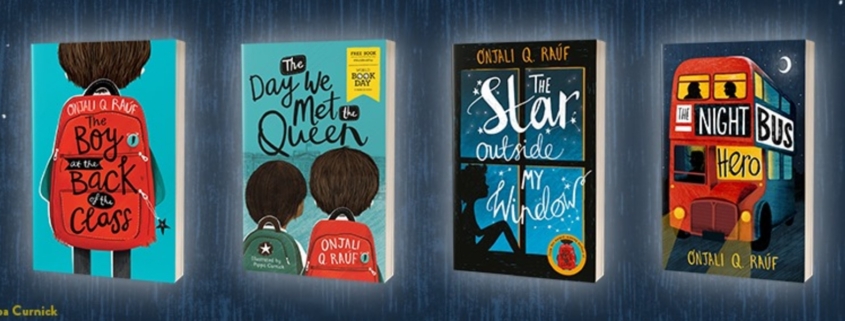Belonging by Onjali Q. Rauf

It doesn’t matter if you’re a super-famous rock star, or the new kid in school: we all want to feel as though we belong – that we have people around us and spaces to be a part of, where we feel comfortable and safe and free to be 1000% ourselves (no matter how seemingly odd or crazy we might be!), and most importantly, to feel loved for being who we are.
Open up any book, any story, be it a fairy tale or a grown-up’s autobiography, and the struggle of belonging – of fitting in, of being accepted for who you are, and having your needs and hopes listened to and made a reality – is likely to be at the core of it. That hunger and need to belong and to feel loved, forges the heart and quest of the most awesome, most unforgettable main characters, be they Superman or Paddington Bear or Mary Lennox of The Secret Garden!
Belonging also means different things for different people. And every author and character created searches for or finds it in different places.
For example, Hector, the bully and main protagonist in my third book, The Night Bus Hero, is an outcast – and angry because of it. He doesn’t feel as loved by his family as he actually is, and feels the need to bully those he deems as weak to show his ‘friends’ he belongs in their company. It takes a homeless man named Thomas – a man who literally doesn’t belong anywhere and is a true outcast in society – to show Hector the many worlds he could belong to if he chose to.
Whilst in The Boy at the Back of the Class, Ahmet, a refugee boy who has fled everything he once belonged to, is gifted a new sense of belonging thanks to the friendship of the narrator and the children ready to welcome him. And Aniyah, in The Star Outside My Window, enters a foster home with her very roots of home and family and everything familiar pulled out and destroyed. She struggles to regain the sense of safety and belonging that only our homes and the figure of a loving parent can usually gift us, and only obtains it after she has fulfilled her quest to aid her mother’s star and in doing so, forging an unbreakable bond with her foster brothers.
Meanwhile Leo, in The Lion Above the Door, is looking for a whole other kind of belonging – one that links his present sense of isolation to a global past– a past in which truths have been eradicated by historical racisms. Leo finds his sense of belonging entirely by accident, thanks to a World War II soldier’s hidden story. That connection to this other story makes Leo – bullied and made to feel so small for who he is by others at school – feel as though finally, he has a part to play in the wider world and its histories.
All my characters, like those written before and yet to come, are on quests to find their place and voice and circles of hearts to belong to and feel a part of. The beauty and adventure lies in knowing there is no one path to reach those goals, but a million and more.




